Small Faces - Small Faces
by Mark Rowland
published: 16 / 4 / 2012
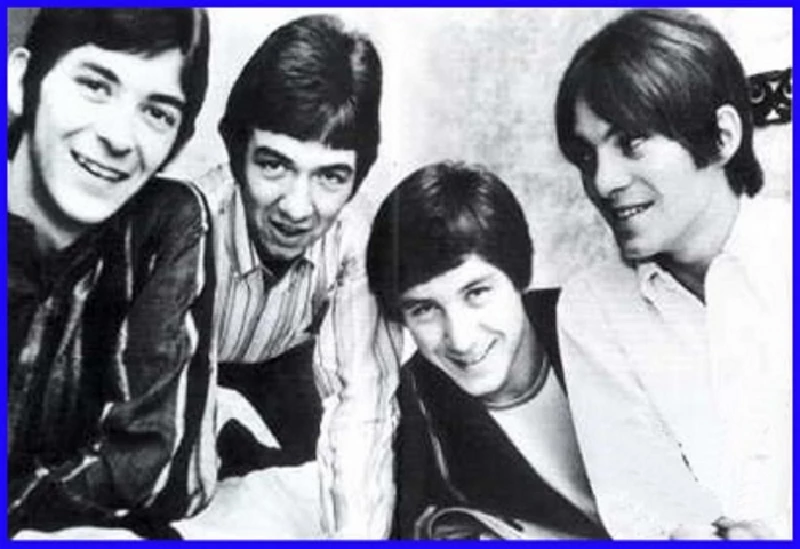
intro
Mark Rowland looks back on the career of 60's mod outfit the Small Faces, whose four albums have just been been re-released in double CD editions
In 1965, London was swinging. The tide of fashion, music and cinema that has caught the world’s attention was at its peak; over the next five years, its star would wane. The Small Faces were snuffed out along with it. The kids that made up the Small Faces were genuine mods; fashion and music obsessives. They formed a band for fun and ended up with a Leicester Square residency. Mods loved them because they were one of them, but it was their singer’s voice that brought them to wider attention. Steve Marriott was diminutive, like the rest of the band, but his voice was huge. It’s reminiscent of Roger Plant’s voice, of strong soul singers such as Otis Redding; a raw, soulful holler. He co-wrote a lot of the band’s songs with bass player Ronnie Lane. Friend Kenney Jones took the drum seat and Jimmy Winston played organ for the first couple of singles before being replaced by Ian McLagan. The band’s name came from the member’s stature (none stood higher than 5’4”) and that they were top mods; ‘faces’. The band was rough and ready, still learning their instruments, but they made up for it with bundles of energy. Within a year of them forming, they had Don Arden for a manager and a contract with Decca Records. Their first album, ‘The Small Faces’, captured the essence of their live show, though it featured more original compositions than the covers that made up the bulk of the band’s early set. After some initial hits and misses, the album gave the band a chart boost, and fifth single ‘All or Nothing’ – apparently about Marriott’s break-up with his fiancée Susan Oliver – shot to the top of the charts. By 1966, the band was one of the highest grossing live acts in the country and had scored four top ten hits. Arden kept tight control of their money, however, and the members saw very little of it. That Arden was greedy is not contended, but the band were their own worst enemies as well, spending lots of money on clothes before they even knew how much they’d earned. Things came to a head when the band’s parents confronted Arden to find out what had happened to their money. Arden accused the band of being addicted to heroin. Although they were hardly angels, the accusation wasn’t true, and broke the trust between Arden and the band. They left Decca soon afterwards. The band leapt out of the frying pan that was Arden and Decca and into the fire that was Immediate and Andrew Loog Oldham. The younger Oldham was, in some ways, a more progressive sort of manager, but he possessed the same arrogance and disregard for the band’s wellbeing as Arden. “We signed [the contract] over a joint,” said McLagan of the Immediate deal. “…. I think it’s rule three in showbusiness: sign when you’re sober.” He did, however, give the band free reign at Olympic Studios, which resulted in a more mature, more obviously studio constructed sound. The first fruit of their labours was the single ‘Here Come the Nice’, a song about buying drugs that managed to avoid any censorship despite it’s lack of lyrical subtlety. An album, also called ‘Small Faces’, followed. The new Small Faces album was less raucous than the previous one, with elements of psychedelic music starting to creep in. The soul influences were still there, but the pace was slowed, and Marriott’s voice less bombastic. Some of the music hall influences that would appear more prominently on later recordings were also in evidence. It didn’t sell as strongly as the previous record, but it was very well received by critics and had an immediate influence on bands of the day. It’s lower sales could be put down to the other, unofficial Small Faces release that came out that year; a compilation of singles and unreleased tracks put together by Decca called ‘From the Beginning’. The compilation is essentially an extension of the first album, but features several early versions of songs that had appeared on the second Small Faces record, including ‘(Tell Me) Have You Ever Seen Me’ and ‘My Way of Giving’. It didn’t matter, however; the Faces didn’t get a penny for either of them. November 1967 saw a new single from the band, one of their most famous. ‘Itchycoo Park’ had more overt psychedelic influences, and was the first song to ever utilize a phasing effect, created by playing two master tapes simultaneously and altering the speed of one slightly by tapping the flange of the tape reel. The song was also very catchy and found its way to number three in the UK charts and number 16 in the US chart – the first Small Faces song to chart there. It was followed by ‘Tin Soldier’, which charted slightly lower in the UK and US, and ‘The Universal’, the band’s final official single and a bitter disappointment for Marriott when it failed to hit the top ten. The Faces fully embraced psychedelia on their next album, ‘Ogdens’ Nutgone Flake’. From the spacey instrumental wig out of the title track to the second half’s story of ‘Happiness Stan,’ the album touched on sounds and concepts that would influence progressive music for the next few years. The album had a much more English feel than previous albums, notably songs such as ‘Lazy Sunday’, which could have come straight from a musical, which Marriott taking on an Artful Dodger persona. The second half of the album is the aforementioned story about Happiness Stan, who spends his days watching the moon. In part narrated by the comedian Stanley Unwin, it was as overblown and pretentious as only an album from the late 60s could be, but the band’s natural stomp prevent it from disappearing up its own arse completely. The songs themselves are diverse, from the disjointed whimsy of ‘Happiness Stan’ to the balls out rock ‘n’ roll of ‘Rollin’ Over’; the straight psych-pop of ‘The Hungry Intruder’ to the folk/music hall hybrid ‘Mad John’. The album was, and still is, hailed as a masterpiece. It sold very well, too; welcome news after the relative slow burn of the previous record. It was to be their last official album. Part of the problem was that the new album was very difficult to play live. It was performed as a whole just once, on the BBC programme ‘Colour Me Pop’. Another was the change in perception in the band’s image in the wake of knees-up type songs such as ‘Lazy Sunday’, which, rather than being received as a sign of a more arty and progressive direction, was seen as a novelty song. “It was a hit, and it killed us, because now we were a joke band,” said Lane in a television documentary of the band. “We were trying to be heavy and we’d suddenly become a joke band.” The biggest problem, however, was Marriott and his increasing displeasure at pop fame. Marriott wanted to be seen as a serious artist, but it didn’t seem to be happening. He walked off stage in the middle of a gig on New Year’s Eve 1968. Within a few months he was in a new band, Humble Pie. The rest of the band recruited Rod Stewart and Ronnie Wood from the Jeff Beck group and formed the Faces, which to an extent to them back to their roots. Despite a short career that ended in poverty and disappointment, the Small Faces have been a major influence on major bands that have come after them. There’s no doubting that Marriott’s singing style influenced several major front men, and the band’s music has been the central foundation for several musical movements, including the mod revival of the late 70s and Britpop in the 90s. The band was finally inducted into the rock n roll hall of fame this year, and double CD reissues of their first albums (the three official studio albums and the unofficial ‘From the Beginning’ compilation) have just been released. They had their misfortunes, but the Small Faces have earned their place among the most influential rock bands of all time, and will always be remembered as one of the major bands of the 60s.
Picture Gallery:-
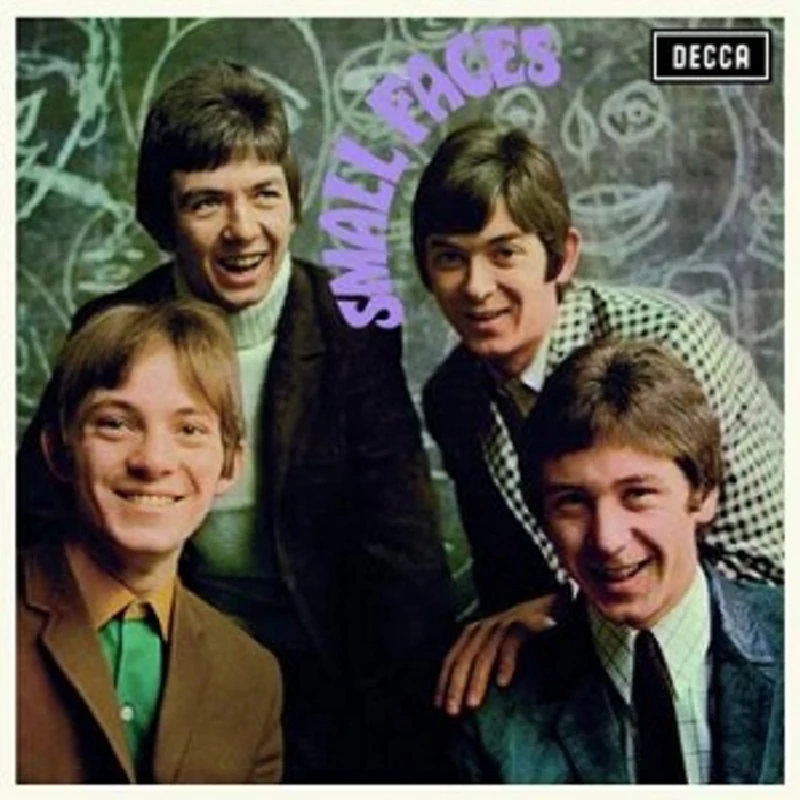
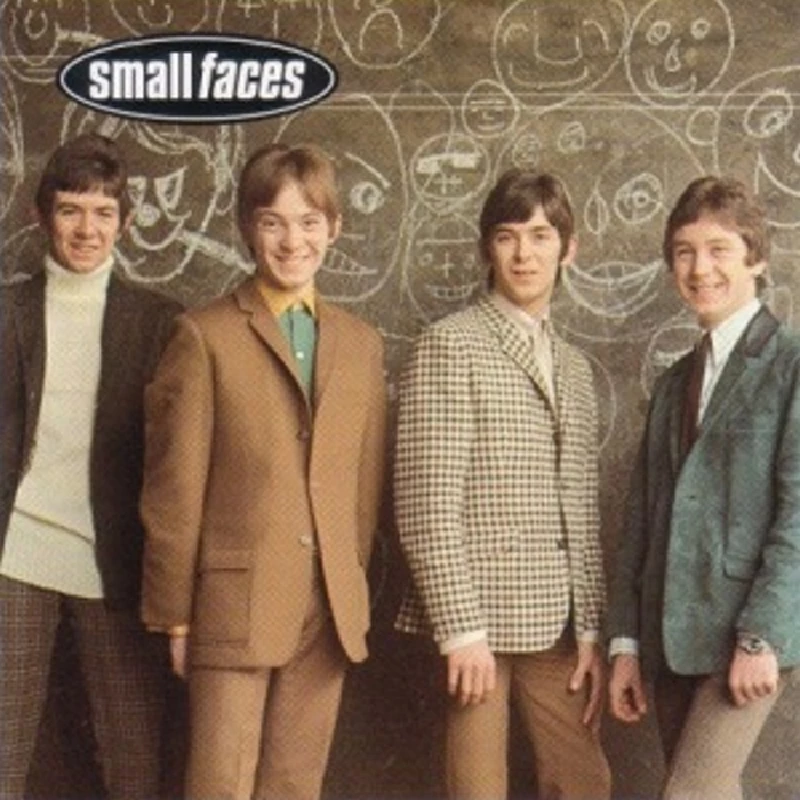
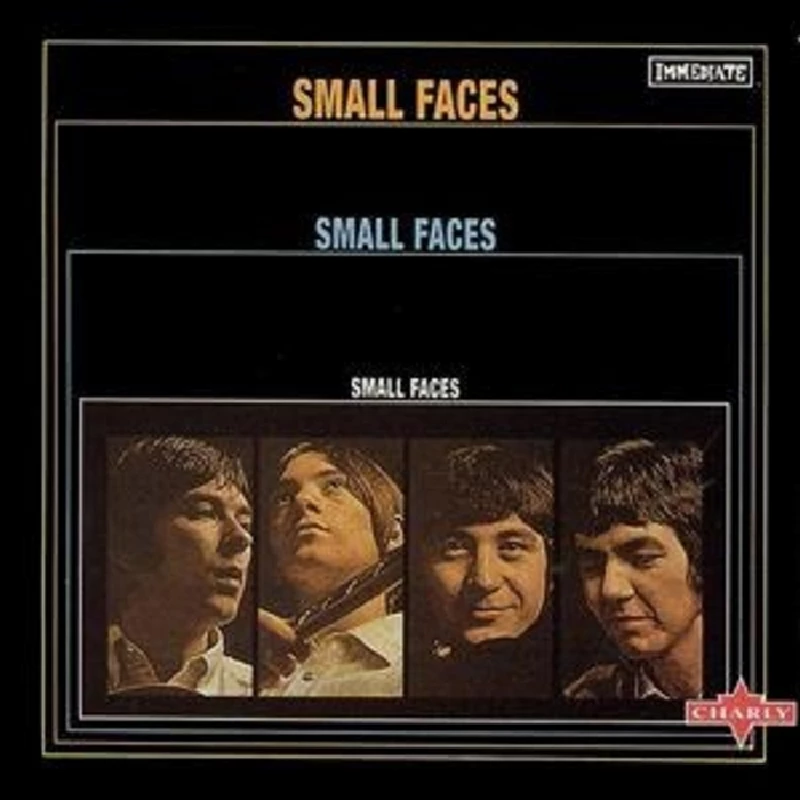
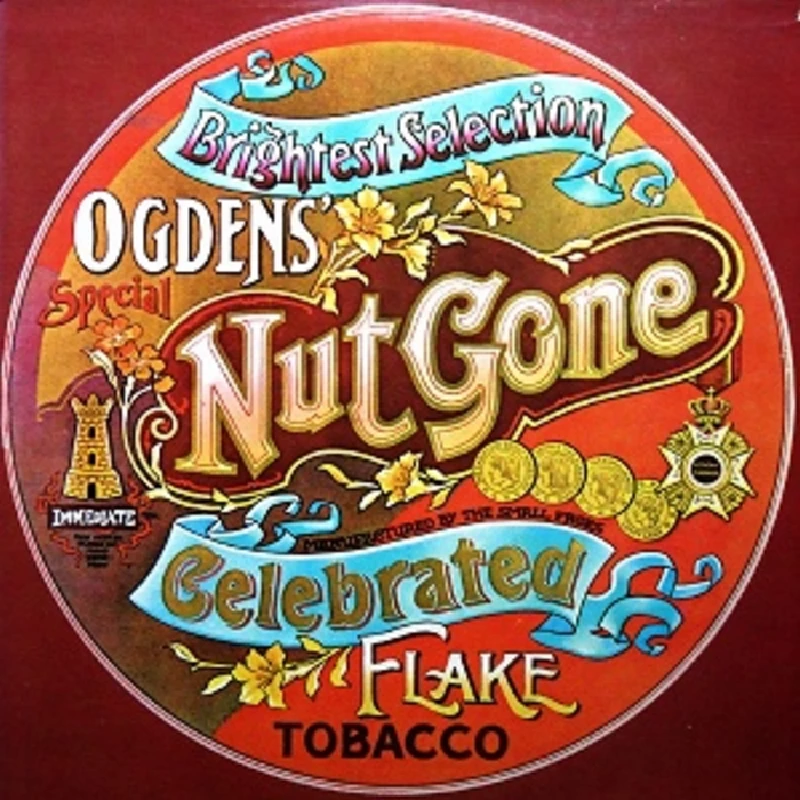
profiles |
|
Profile (2015) |
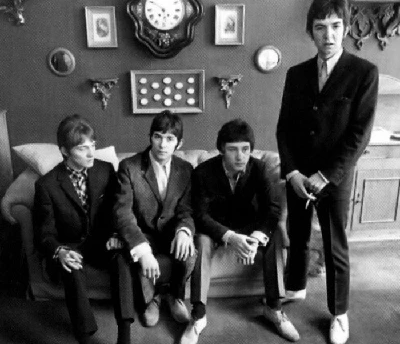
|
| Keith How reflects on new five CD Small Faces box set 'The Decca Years 1965-1967', which highlights their early years |
| Profile (2014) |
most viewed articles
current edition
Carl Ewens - David Bowie 1964 to 1982 On Track: Every Album, Every SongColin Blunstone - Thalia Hall, Chicago, 16/7/2025
Visor Fest - Valencia, Spain, 26/9/2025...27/9/2025
Bathers - Photoscapes 1
Bathers - Photoscapes 2
Billie Eilish - O2 Arena, London, 10/7/2025
Editorial - July 2025
Cathode Ray - Interview
John McKay - Interview
Cleo Laine - 1927-2025
previous editions
Heavenly - P.U.N.K. Girl EPTrudie Myerscough-Harris - Interview
Beautiful South - Ten Songs That Made Me Love...
Pixies - Ten Songs That Made Me Love...
Boomtown Rats - Ten Songs That Made Me Love....
Fall - Hex Enduction Hour
Jimmy Nail - Interview
Doris Brendel - Interview
Sam Brown - Interview Part 2
Blues and Gospel Train - Manchester, 7th May 1964
most viewed reviews
current edition
Amy Macdonald - Is This What You've Been Waiting For?Sick Man of Europe - The Sick Man of Europe
Alice Cooper - The Revenge of Alice Cooper
Phew, Erika Kobayashi,, Dieter Moebius - Radium Girls
Lucy Spraggan - Other Sides of the Moon
Blueboy - 2
Cynthia Erivo - I Forgive You
Davey Woodward - Mumbo in the Jumbo
Lapsley - I'm a Hurricane, I'm a Woman In Love
Philip Jeays - Victoria
related articles |
|
Ian Mclagan: Feature (2016 |
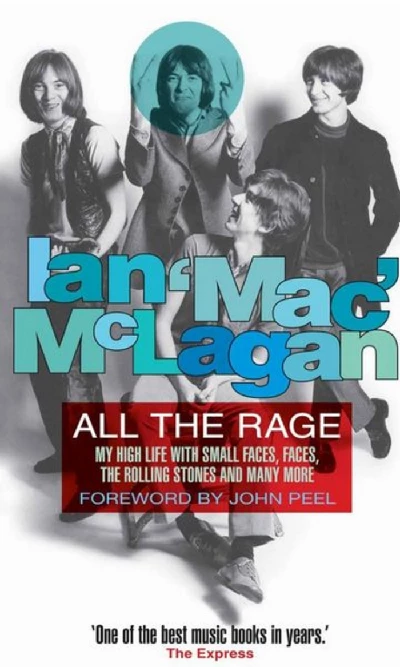
|
| In 'Raging Pages', her monthly book column, Lisa Torem reflects on the late Ian McLagan's ‘All The Rage: My High Life with Small Faces, Faces, The Rolling Stones and Many More,’ which was originally published in 1998 |
| Ian McLagan: Interview (2014) |
| Ian McLagan: Live Review (2014) |
Pennyblackmusic Regular Contributors
Adrian Janes
Amanda J. Window
Andrew Twambley
Anthony Dhanendran
Benjamin Howarth
Cila Warncke
Daniel Cressey
Darren Aston
Dastardly
Dave Goodwin
Denzil Watson
Dominic B. Simpson
Eoghan Lyng
Fiona Hutchings
Harry Sherriff
Helen Tipping
Jamie Rowland
John Clarkson
Julie Cruickshank
Kimberly Bright
Lisa Torem
Maarten Schiethart